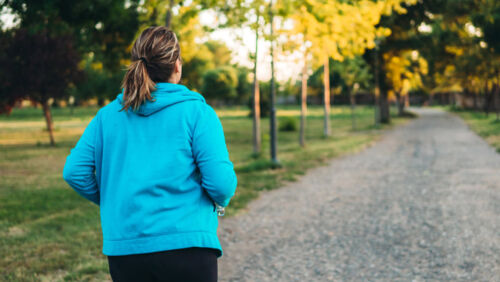Kate Campbell reveals where she would invest $10k
By Kate Campbell
Where would you invest $10,000? We spoke to eight finance experts to find out what they would do with such a windfall.
I don't think there's any other way to put this: investing is an act of hope. Hope in your financial future, your family's future and the future of the world.
Sometimes I joke that if you're not willing to invest with optimism in the future, you may as well spend your money building a bunker and buying cans of baked beans for the end of the world.
Investing without optimism is hard. It's hard on your finances and it's hard on your mental state. If you spend every day poring over headlines of doom and gloom wondering when the next market crash is going to hit, it's difficult to be fully present in the moment.
One of the main changes to my approach to investing in 2021 is the consideration of my values.
While before I was focused on "getting it right" and making sure I was doing everything possible to secure my financial future, my focus over the past year has shifted. Now, I'm much more concerned as to whether I'm investing in line with my values.
I'm intentionally contributing to the world I want to see and the future that I want to live in.
This isn't simply throwing reason to the wind and losing sight of the fundamentals of personal finance, but refining my approach to suit my ever-changing needs and objectives. I don't want to copy and paste someone else's playbook, but I do want to learn from the wisdom of others as I create my own.
We've all had more than our fair share of challenges over the past year, but I think it's more important than ever to reflect on the way our investments impact our lives and mental health and the role we play in the world.
Investing in a company that doesn't treat its employees and customers well, has a poor impact on the community and environment and, frankly, doesn't care about bettering society, isn't going to have a positive impact on your life in the long term.
My preference is to invest in companies that are doing right by their employees and customers, focusing on strong company culture, concerned about their environmental impact and doing the right thing even when it's hard.
I think many of us can agree that we don't want to be investing in companies that are harming the world. This absolutely doesn't mean losing a sense of reality and putting every dollar you have into a single clean energy company. It's more about focusing on investing in a way that empowers you, that gives you a sense of pride and that doesn't add to your burdens and challenges.
Investing shouldn't stop you from sleeping at night; rather it should offer a more positive vision of the future. Consider what you want the world to look like in the next 10 or 20 years. What companies are going to help build that future? And what companies reduce the possibility of that future?
Sure, I'm young and idealistic, but I want to be part of the solution and investing in line with my values is one way to do that. With another good 60-plus years of investing ahead of me, I don't need to be obsessed with the short-term noise and I can concentrate on investing without the distractions (that is, if I can keep from falling prey to myriad cognitive biases).
Where I would invest $10,000
You've probably heard about ethical and ESG investing over the past few years, but I'd love to hear more surrounding values-based investing and our personal mental health.
Money is a great point of stress in many people's lives and I know many of us are struggling with our finances, or have loved ones who are struggling, whether or not they speak about it.
So, to not speak about the role that our finances play in our overall well-being is a missed opportunity.
This will look different for everyone, but for me (and my $10,000), my investing choices include being more intentional when choosing my super fund, researching a company that will improve healthcare outcomes for Australians and investing in exchange traded funds that exclude companies contributing to the climate crisis.
So, when you're thinking about investing through whatever vehicle you choose (ETFs, shares, property), consider using investing as a tool that empowers you, rather than something that's going to add more stress to your already full plate.
If you're interested in learning more about how to invest in companies that align with your values, I helped create a great free course on ethical investing which you can find at Rask Education.
Get stories like this in our newsletters.



